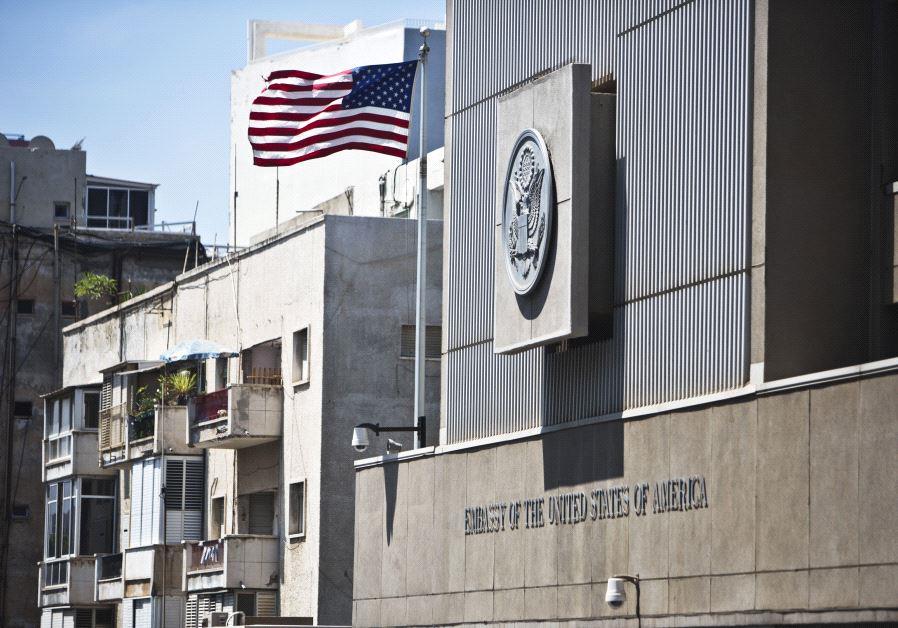BEIJING, Dec. 8 (Xinhua) -- U.S. President Donald Trump announced Wednesday his official recognition of Jerusalem as Israel's capital and instructed moving the U.S. embassy in Israel from Tel Aviv to Jerusalem. The move triggered wide criticism and concerns around the world.
Libya's Higher Council of State on Thursday called on Libyans and all Muslims around the world to "demonstrate peacefully" against Trump's decision.
"We demand the international community, the Organization of Islamic Cooperation, and the Arab League take a clear position and act to prevent the implementation of this decision, in order to maintain balance and stability in the region," the council said in a statement.
This step "will undermine the possibility for any settlement for peace and stability in the region," the statement added.
United Nations (UN) Secretary-General Antonio Guterres said Wednesday that he is "against any unilateral measures that would jeopardize the prospect of peace for Israelis and Palestinians."
"Jerusalem is a final status issue that must be resolved through direct negotiations between the two parties on the basis of the relevant Security Council and General Assembly resolutions," the UN chief told reporters immediately after Trump announced the decision.
Palestinian President Mahmoud Abbas condemned and rejected the U.S. decision in a speech aired live on the official Palestinian television, saying the United States is ignoring and contradicting "the international consensus expressed by the positions of various countries of the world."
China's Foreign Ministry spokesperson Geng Shuang said the status of Jerusalem is sensitive and complicated, urging all parties concerned to exercise caution for peace and tranquility in the Middle East.
China firmly supports the Middle East peace process and the just cause of the Palestinian people to restore their legitimate rights and interests, said Geng.
Federica Mogherini, the European Union (EU)'s foreign policy chief, reiterated in a statement that the EU backs a two-state solution and this stance remains unchanged.
British Prime Minister Theresa May said in a statement that Britain disagreed to the U.S. decision and "it is unhelpful in terms of prospects for peace in the region."
"Our position on the status of Jerusalem is clear and long-standing: it should be determined in a negotiated settlement between the Israelis and the Palestinians, and Jerusalem should ultimately be the shared capital of the Israeli and Palestinian states," she said.
French President Emmanuel Macron said that France does not support Trump's "unilateral" decision to recognize Jerusalem as the capital of Israel.
"The Federal Government does not support this attitude because the status of Jerusalem is to be negotiated within the framework of a two-state solution," German spokesperson Steffen Seibert said on Twitter on behalf of German Chancellor Angela Merkel.
The Turkish Foreign Ministry also called on the U.S. administration to reconsider this faulty decision and avoid harming the multicultural identity and historical status of Jerusalem, condemning the U.S. decision as "irresponsible" with risks of destroying the ground for peace.
Iranian President Hassan Rouhani slammed the move as "illegal" and would further destabilize the Middle East, holding Israel "responsible for all the insecurity and instability" in the region.
Egypt's Foreign Ministry said that such a unilateral decision violates international legitimacy, adding the decision will not change the legal status of Jerusalem as an occupied city.
Cuba's Foreign Affairs Ministry said that the U.S. unilateral move was "a serious and flagrant violation of the United Nations Charter, of International Law and pertinent resolutions by the United Nations."
The Venezuelan Foreign Affairs Ministry expressed the government's "strongest rejection and condemnation of the arbitrary decision by the United States government to recognize the city of Jerusalem, illegally occupied by Israel, as the capital of the state of Israel."
Algeria condemned the U.S. decision, saying it was "a flagrant violation of relevant Security Council regulations and international legitimacy that would undermine the possibility of resuming the long-stalled peace process."
The Tunisian Foreign Ministry said Tunisia was deeply concerned about the decision, noting "the historical and regulatory status" of Jerusalem "is threatened especially as it contradicts United Nations resolutions and agreements between Palestinians and Israelis."
However, Israeli Prime Minister Benjamin Netanyahu called Trump's decision "historic," saying that it showed U.S. commitment to "an ancient but enduring truth."
Jerusalem, which is home to holy sites sacred to Jews, Muslims and Christians, lies at the core of the Israeli-Palestinian dispute. Trump's controversial move is expected to enrage the Muslim world with serious consequences.
